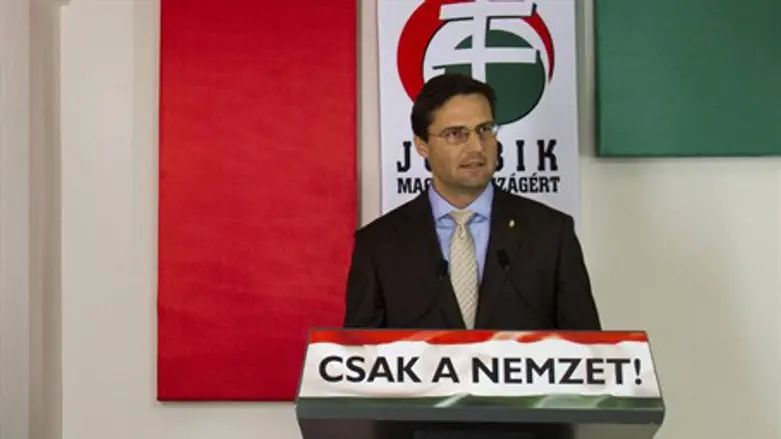
The Anti-Defamation League (ADL) welcomed the Hungarian government's approval of an amendment laying the groundwork to hold members of parliament accountable for hateful remarks.
The approval by Hungary's parliament came in the wake of anti-Semitic statements made by Marton Gyongyosi of the neo-Nazi Jobbik party, who stated on the floor of the parliament that "it is high time to assess how many MPs and government members are of Jewish origin and who present a national security risk to Hungary."
His remarks were subsequently condemned by Prime Minister H.E. Viktor Orban and State Secretary Peter Szijjarto.
"We recognize that the line separating hate speech from legitimate political speech is not always clear and trust that these new authorities will not be misused to punish statements of opposing political views," said Abraham H. Foxman, ADL National Director. "However, if the new law is to be an effective tool, all hate speech should be sanctioned if it targets individuals or groups based on their race, religion, ethnicity, nationality, gender, sexual orientation, gender identity, or disability.
"The value of the new authorities granted to the Speaker of the parliament will depend, of course, on the manner in which they are implemented," Foxman wrote.
In November, ADL sent a letter to Prime Minister Orban, expressing concern over the comments made in parliament and urged the Hungarian government to take appropriate action against flagrant hate speech.
State Secretary Szijjarto later responded to the League's letter stating that the Prime Minister "reassured members of the Jewish community in Hungary that the government will protect them from any despicable attacks and will guarantee their safety."
Earlier this year, the ADL conducted a poll which showed anti-Semitic attitudes in ten European countries remained at disturbingly high levels, including Hungary, where the level rose to 63 percent of its population, compared to 47 percent in 2009.
